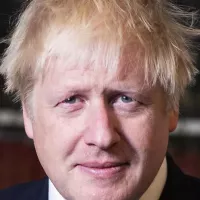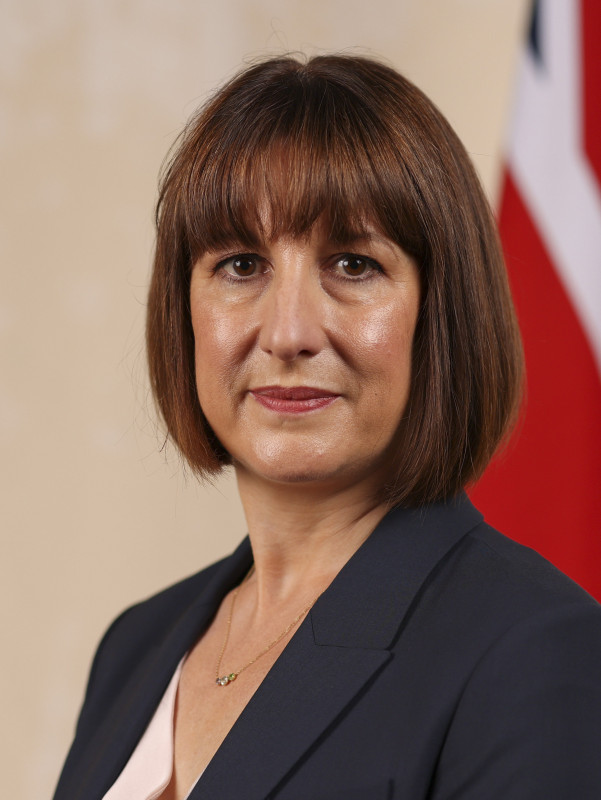How Rachel Reeves built a successful career. Explore key moments that defined the journey.
Rachel Reeves is a prominent British Labour Party politician currently serving as Chancellor of the Exchequer since July 2024. She has been a Member of Parliament for Leeds West (formerly Leeds West and Pudsey) since 2010. Prior to her current role, Reeves held several significant positions within the Shadow Cabinet, including shadow ministerial portfolios between 2010 and 2015, and from 2020 to 2024. Her career reflects a consistent rise within the Labour Party ranks.
1993: Biggest tax rise since 1993
In October 2024, Rachel Reeves presented her first budget, announcing tax rises worth £40 billion, the biggest tax rise at a budget since 1993.
2005: Stood as Labour candidate for Bromley and Chislehurst
In 2005, Rachel Reeves stood as the Labour Party parliamentary candidate in Bromley and Chislehurst, finishing second.
2006: Contested the Bromley and Chislehurst by-election
In 2006, Rachel Reeves contested the Bromley and Chislehurst by-election, finishing in fourth place.
2006: Moved to Leeds to work for HBOS
In 2006, Rachel Reeves moved to Leeds to work for the retail arm of HBOS.
2008: Involved in campaign to save Bramley Baths
In 2008, Rachel Reeves was involved in the campaign to save the historic Bramley Baths.
2008: Studies on the 2008 financial crisis
In 2008, Rachel Reeves wrote studies on the 2008 financial crisis for various publications.
May 2009: Left HBOS via voluntary redundancy
In February 2025, the BBC reported that Rachel Reeves had left HBOS via voluntary redundancy in May 2009.
May 2010: Elected as MP for Leeds West
On 6 May 2010, Rachel Reeves was elected as the Member of Parliament (MP) for Leeds West.
June 2010: Delivered maiden speech
On 8 June 2010, Rachel Reeves delivered her maiden speech in Parliament, praising John Battle and committing to fight for justice for victims of the Armley asbestos disaster.
October 2010: Appointed Shadow Pensions Minister
In October 2010, Rachel Reeves was appointed as Shadow Pensions Minister on Ed Miliband's frontbench.
2010: Sought nomination for Leeds West seat
In 2010, Rachel Reeves sought nomination for the Leeds West seat in the general election, aiming to replace John Battle.
2010: Publication of Why Vote Labour?
In 2010, Rachel Reeves wrote the new edition of Why Vote Labour? in the run-up to the general election, as part of a series giving the case for each of the main political parties. This echoed similar publications by Roy Jenkins in 1959 and Tony Wright in 1997.
2010: First Labour budget since 2010
In October 2024, Rachel Reeves presented her first budget, which was the first Labour budget since 2010.
October 2011: Promoted to Shadow Chief Secretary to the Treasury
In October 2011, Rachel Reeves was promoted to the post of Shadow Chief Secretary to the Treasury.
2011: Promotion to Shadow Chief Secretary to the Treasury
In 2011, Rachel Reeves was promoted to the shadow cabinet as Shadow Chief Secretary to the Treasury.
2013: Became Shadow Secretary of State for Work and Pensions
In 2013, Rachel Reeves became the Shadow Secretary of State for Work and Pensions.
2014: Abstention on Palestinian State Recognition
In 2014, Rachel Reeves, as a Labour MP, abstained on a parliamentary motion to recognise the State of Palestine. The motion ultimately passed with support from the Labour Party under Ed Miliband's leadership, after Reeves and other pro-Israel Labour MPs requested Miliband not to hold a three-line whip in favor of the motion.
2015: Returned to the backbenches
Following Jeremy Corbyn's election as leader in 2015, Rachel Reeves returned to the backbenches.
2015: Re-elected at general election
In 2015, Rachel Reeves was re-elected at the general election with an increased vote share and majority.
2015: Re-elected to Parliament and Left Shadow Cabinet
In 2015, Rachel Reeves was re-elected to Parliament but left the shadow cabinet after Jeremy Corbyn's election as Labour leader.
2016: Campaigning to remain in the European Union
In 2016, Rachel Reeves campaigned to remain in the European Union (EU) in the Brexit referendum. After the result was in favour of leaving in the EU, Reeves called for a stricter immigration policy by an end to free movement as part of the Brexit deal, but also called for the 'greatest possible access' to the single market without having free movement.
July 2017: Elected chair of the Business, Energy and Industrial Strategy Committee
On 12 July 2017, Rachel Reeves was elected as chair of the Business, Energy and Industrial Strategy Committee.
2017: Elected chair of the Business, Energy and Industrial Strategy Committee
In 2017, Rachel Reeves became chair of the Business, Energy and Industrial Strategy Committee.
2017: Re-elected at the snap general election
In 2017, Rachel Reeves was re-elected at the snap general election with an increased vote share and majority.
2017: Publication of Alice in Westminster
In 2017, Rachel Reeves' biography of Labour politician Alice Bacon, titled Alice in Westminster: The Political Life of Alice Bacon, was published. Bacon was the first and previously only woman to represent a Leeds constituency.
2019: Re-elected at the general election
In 2019, Rachel Reeves was re-elected at the general election with a decreased vote share and majority.
January 2020: Re-elected chair of the Business, Energy and Industrial Strategy Committee
In January 2020, Rachel Reeves was re-elected as chair of the Business, Energy and Industrial Strategy Committee.
April 2020: Returned to the frontbench
In April 2020, Rachel Reeves returned to the frontbench.
2020: Returned to shadow cabinet as Shadow Chancellor of the Duchy of Lancaster
In 2020, Rachel Reeves returned to the shadow cabinet as Shadow Chancellor of the Duchy of Lancaster under Keir Starmer.
2020: Appointed Shadow Chancellor of the Duchy of Lancaster
In 2020, Rachel Reeves was appointed as Shadow Chancellor of the Duchy of Lancaster when Keir Starmer became Labour leader.
2020: Labour Party Position on Rejoining the EU
In 2020, as Shadow Chancellor of the Duchy of Lancaster, Rachel Reeves stated she would have preferred the UK to remain in the EU. However, she confirmed that the Labour party would not seek to rejoin the EU if elected to government, emphasizing the need to move forward.
May 2021: Promoted to Shadow Chancellor of the Exchequer
In May 2021, Rachel Reeves was promoted to Shadow Chancellor of the Exchequer in a British shadow cabinet reshuffle.
May 2021: Moved into role of Shadow Chancellor of the Exchequer
On 9 May 2021, Rachel Reeves became Shadow Chancellor of the Exchequer.
2021: Economic impact of 2021-2023 global energy crisis
In June 2023, Rachel Reeves revised the Labour party's climate investment plan to a gradual roll-out, reaching £28 billion by around 2027, due to the economic impact of the 2021–2023 global energy crisis, food price crisis and the Truss government's mini-budget.
2022: Views on Economic Reliance on China
In 2022, Rachel Reeves stated that the UK was "still too over-reliant on China" and also said that the UK was "overly reliant" on countries that do not share the UK's values for "basic needs", while clarifying that this didn't mean cutting off all links.
2022: Espoused 'modern supply-side economics'
Since 2022, Rachel Reeves has espoused "modern supply-side economics", focusing on infrastructure, education, and labour supply by rejecting tax cuts and deregulation.
May 2023: Securonomics based on fiscal responsibility
In May 2023, Rachel Reeves stated that securonomics had to be based on "the rock of fiscal responsibility" in an interview with the Financial Times.
June 2023: Revised climate investment plan
In June 2023, Rachel Reeves revised the Labour party's climate investment plan to a gradual roll-out, reaching £28 billion by around 2027, due to the economic impact of various crises and the Truss government's mini-budget.
July 2023: Securonomics Policy Speech
In July 2023, Rachel Reeves gave a speech outlining her securonomics policy. She asserted that a "rising China" was "unbalancing the old global order of a unipolar world".
October 2023: Publication of The Women Who Made Modern Economics
In October 2023, Rachel Reeves' book The Women Who Made Modern Economics was published. Following publication, reports surfaced in The Financial Times of plagiarism, with content lifted from Wikipedia, The Guardian, and other sources. Reeves acknowledged that some sentences "were not properly referenced" and would be corrected in future reprints.
February 2024: Climate investment policy halved
In February 2024, Starmer and Reeves announced that the £28 billion per year climate investment policy would be halved due to the economic situation and to prevent Conservative criticism. Reeves stated that the goal was to bring jobs to Britain, reduce energy bills, boost energy security, and decarbonize the economy. The home insulation grants part of the policy would be most heavily curtailed, to protect schemes such as a publicly owned Great British Energy clean energy company and a sovereign wealth fund.
March 2024: Views on China's Global Influence
In March 2024, Rachel Reeves said that China "looms large on the world stage" in reference to what she perceives as a shift in the world to a "unbalanced multipolarity".
July 2024: Appointed Chancellor of the Exchequer
In July 2024, Rachel Reeves became the Chancellor of the Exchequer.
October 2024: Opposition to Tariffs on Chinese Electric Vehicles
As Chancellor of the Exchequer, in October 2024, Rachel Reeves opposed imposing tariffs on China's electric vehicles in the budget. She stated that she did not want to "close the UK economy down to imports and exports", acknowledging the benefits of trade links, including with China.
October 2024: Presented first budget as Chancellor of the Exchequer
In October 2024, Rachel Reeves presented her first budget as Chancellor of the Exchequer, introducing the largest tax rises at a budget since March 1993.
October 2024: Appointed Chancellor of the Exchequer
In October 2024, following Labour's victory, Rachel Reeves was appointed Chancellor of the Exchequer, becoming the first woman to hold the office. She stated her focus would be on unlocking private-sector investment due to limited funds. She announced her first budget would be released on 30 October 2024.
November 2024: Increase on Windfall Tax Confirmed
In November 2024, Rachel Reeves confirmed an increase on the windfall tax on the profits of energy and gas companies, as part of her spending review after the 2024 general election.
December 2024: Statements on relationship with China
In December 2024, Rachel Reeves mentioned that there is a "pragmatic" relationship with China, stating that they are the fifth-largest trading partner and have invested £32 billion in exports.
2024: Views on Immigration and Brexit
In 2024, Rachel Reeves stated in an interview with the Financial Times that immigration was a leading cause of the country voting to leave in the referendum, saying that when her constituents voted to leave it was "purely because of immigration".
2024: Elected as MP for Leeds West and Pudsey
In 2024, Rachel Reeves was elected to Parliament as the MP for Leeds West and Pudsey, securing 49.3% of the vote with a majority of 12,392.
2024: LinkedIn CV updated to reflect role at HBOS
In 2024, Rachel Reeves's LinkedIn CV was changed to update her role at HBOS to "Retail Banking" due to criticism of her describing herself as an economist there.
2024: Unveiling of the sculpture Ribbons
In 2024, the sculpture Ribbons by Pippa Hale was unveiled, culminating in a partnership between Leeds Arts University, Leeds City College and Leeds City Council to create a new public artwork in Leeds that featured women.
January 2025: Rise in single bus fare cap
In January 2025, Rachel Reeves announced in her budget a rise in the single bus fare cap to £3.
January 2025: Visit to China
In January 2025, Rachel Reeves plans a visit to China with aims to strengthen economic ties with Beijing. The focus of the meeting will be on normalising relations with the UK.
January 2025: VAT on private school fees to begin
In January 2025, Rachel Reeves' spending review confirmed that Labour's manifesto pledge to charge 20% VAT on private school fees would begin.
April 2025: National Insurance increase for employers
In April 2025, as part of her budget, Rachel Reeves announced an increase in employers' National Insurance to 15% on salaries above £5,000.
April 2026: Changes to farm inheritance tax
In April 2026, Rachel Reeves' budget announced changes to farm inheritance tax, meaning that the inheritance tax of 20% would effectively apply to rural estates above the value of £1,000,000.
2027: Climate Investment target year
In June 2023, Rachel Reeves revised the Labour party's climate investment plan to a gradual roll-out, reaching £28 billion by around 2027.
2028: Income tax thresholds to rise in-line with inflation after 2028
As part of Rachel Reeves' budget in October 2024, it was announced that income tax thresholds are set to rise in line with inflation after 2028.
Mentioned in this timeline

Vladimir Vladimirovich Putin is a Russian politician and former intelligence...
Ukraine is a large country in Eastern Europe second in...

Benjamin Bibi Netanyahu is a prominent Israeli politician and diplomat...

Joe Biden a member of the Democratic Party served as...

Boris Johnson a British politician and writer served as Prime...
The Guardian is a British daily newspaper founded in as...
Trending

7 months ago Rodrygo transfer: Arsenal learns price, Real Madrid future decided amid Alonso's update.

6 months ago Bo Bichette Hailed Jays Fans After Yankees Series Amid Lineup Placement Debate
7 months ago Reza Pahlavi sees opportunity to end Iranian regime, urges break with Islamic Republic.

3 months ago Republicans Question Trump's Drug War and Military Actions: A Shift in Stance?

10 months ago Dan Hurley Discusses UConn Basketball, Transfer Portal on '60 Minutes'

1 month ago NY AG Seeks Disqualification of US Attorney Investigating Trump Lawsuits: A Legal Challenge
Popular

Stranger Things created by the Duffer Brothers is a popular...

XXXTentacion born Jahseh Dwayne Ricardo Onfroy was a controversial yet...

Kelsey Grammer is an accomplished American actor producer and singer...

Candace Owens is an American conservative political commentator and author...

Bernie Sanders is a prominent American politician currently serving as...

Marco Rubio is an American politician attorney and diplomat He...



